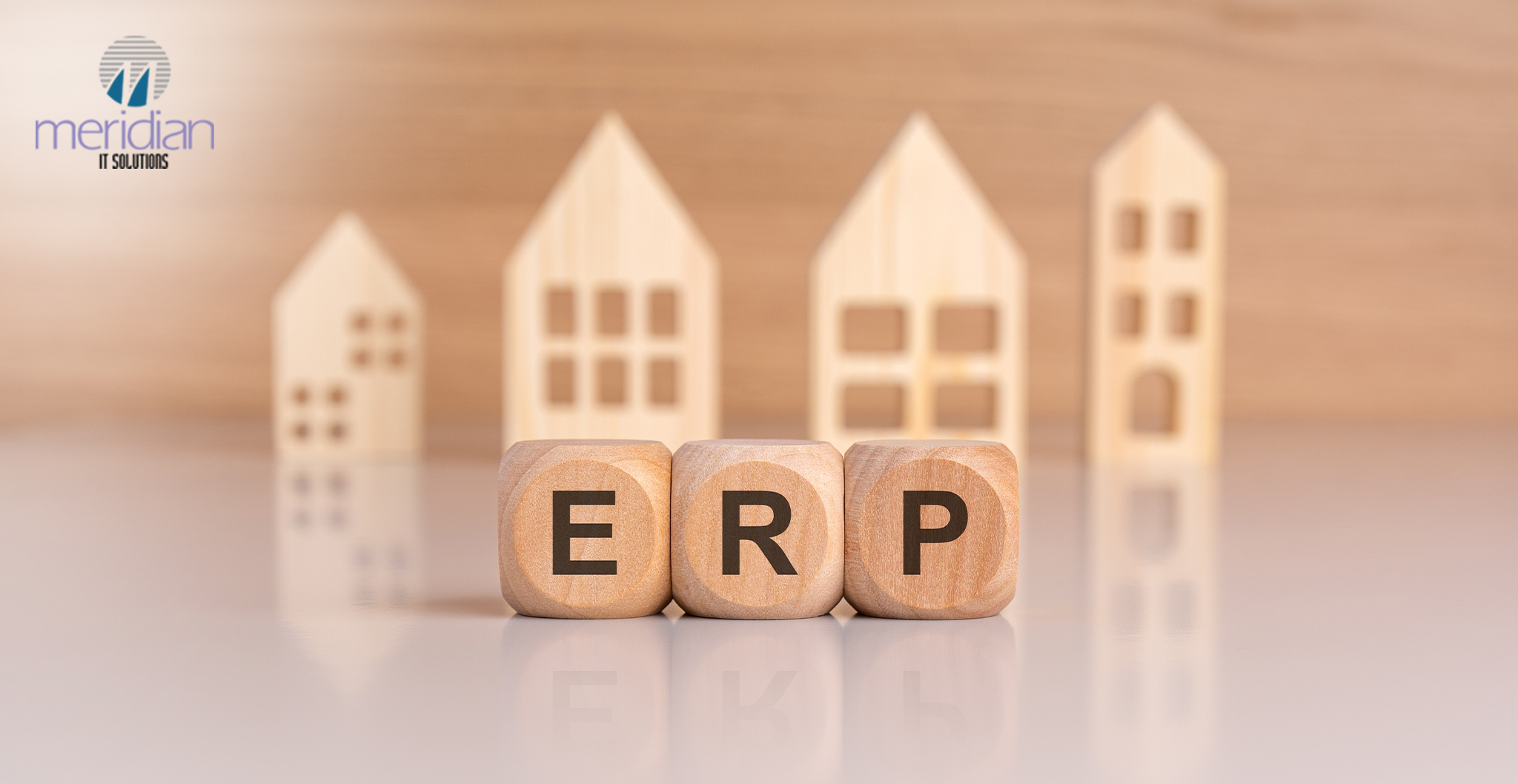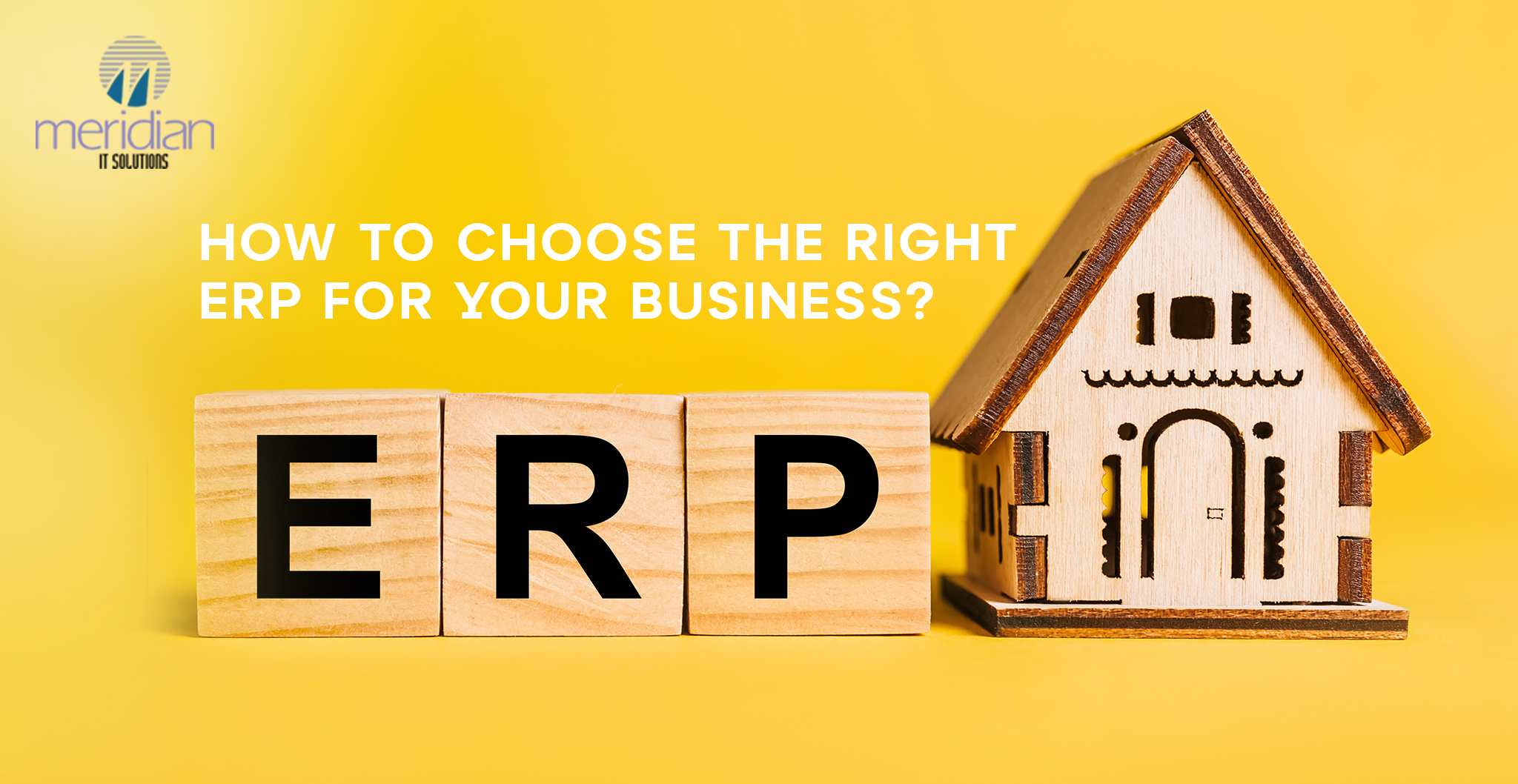
In today’s fast-evolving real estate industry, managing complex operations, client relationships, and financial workflows can be challenging without the right technology. That’s where Real Estate Management Software come into play. The need for the Real Estate ERP is growing as real estate developers, brokers, and property managers strive to streamline processes, enhance customer experience, and drive profitability.
Are you trying to get the best ERP for real estate in the UAE but are confused where to start? You are not alone. A solution that helps handle off-plan developments, sales, rents, compliance, and reporting in one place is sought after by several real estate developers, brokers, and leasing firms.
It quickly becomes confusing with so many ERP options competing for the top spot. Some concentrate on project monitoring or CRM, while others are more interested in finance. An ERP system that fits your business strategy, complies with UAE laws like RERA, and expands with your real estate holdings is actually what you need.
At Meridian IT Solutions, we understand these challenges. That’s why we’ve introduced Dwellix, our cutting-edge Real Estate ERP, designed to simplify, automate, and optimize every aspect of your business.
What is a Real Estate ERP Software?

A Real Estate ERP Software is an enterprise-level platform that integrates all the core business processes of a real estate company into a single system. It enables real estate firms to efficiently manage projects, sales, leases, customer relationships, and finances. By offering a centralized database and automated workflows, it eliminates duplication, enhances transparency, and ensures better decision-making.
Unlike generic ERP systems, a real estate-specific ERP is tailored to the industry’s unique requirements, such as property listings, customer bookings, project milestones, and rental agreements. This makes it an essential tool for businesses looking to scale and deliver seamless customer experiences.
Common Challenges in Real Estate Business Operations

In the UAE, running a real estate business is more than just offering and selling homes. From managing off-plan projects in different emirates to staying compliant with RERA and VAT regulations, there are a lot of moving parts. Teams frequently experience delays, misunderstandings, and lost income opportunities when the proper systems are not in place. Understanding the most prevalent issues that impede growth and service delivery is essential before selecting the Best ERP for Real Estate.
1. Managing Projects Across Multiple Sites
Real estate developers often juggle multiple projects spread across different locations. Tracking progress, budgets, and timelines without centralized software can lead to errors, delays, and cost overruns.
2. Manual Leasing and Renewal Processes
Handling tenant leases, rent renewals, and payment collections manually increases the risk of missed payments and compliance issues. It also consumes valuable staff time that could be used for strategic work.
3. Disconnected Finance Workflows
Finance teams in many real estate businesses operate in silos, making it difficult to maintain accurate cash flow visibility. This lack of integration between departments leads to reporting errors and delays in financial decision-making.
4. Missing or Hard-to-Access Documents
Lease agreements, RERA approvals, and property-related documents are often scattered across emails or paper files. This makes retrieval time-consuming and risky, especially when compliance checks are required.
5. Poor Tracking of Service Requests
Without a structured system, property managers struggle to track tenant service requests or SLA fulfillment. This can lead to unresolved issues, reduced tenant satisfaction, and reputational damage.
6. Weak Tenant Communication
Limited communication channels and lack of history tracking make it difficult to provide consistent support. Tenants may feel neglected when their concerns are not acknowledged or properly recorded.
These challenges highlight why businesses need a robust Real Estate Management Software like Dwellix. By addressing these pain points, organizations can build stronger tenant relationships, stay compliant, and improve operational efficiency.
Why Real Estate Businesses Need an ERP System?

The real estate sector involves multiple stakeholders, vast data, and high-value transactions. Traditional methods of managing projects, sales, and customer data often lead to inefficiencies. Customised ERP or real estate management software benefits companies in the following ways:
- Centralize operations in one platform.
- Improve collaboration between departments.
- Gain real-time insights for decision-making.
- Streamline property management, sales, leasing, and financial processes.
- Enhance customer satisfaction with transparent communication.
By investing in the Best ERP for Real Estate or adopting powerful Real Estate Management Software, businesses can save time, reduce costs, and ensure smoother operations.
Essential ERP Features That Real Estate Firms in the UAE Can’t Afford to Skip
Selecting the finest real estate ERP involves both technological and strategic considerations. For UAE real estate companies, your ERP must be more than just project monitoring or simple bookkeeping. In addition to helping you satisfy local compliance requirements like VAT and RERA, it should facilitate communication between your leasing, finance, sales, and service teams.
The following are essential characteristics to search for in the top real estate ERP:
1. Project Lifecycle Management
- Track the purchase of the property, the off-plan phases, the building process, and the completion of the project with real-time updates.
- Provides you with a comprehensive overview of the status of your project at all times.
2. Leasing and Sales CRM
- Manage the processes of lead generation, unit reservations, contract development, renewals, and collection.
- simplifies the process of managing leasing and sales from a single location.
3. Finance and Accounting Integration
- Create invoices that adhere to VAT regulations, control spending, and keep an eye on profit margins.
- Aids financial departments in maintaining accuracy and adherence to UAE tax regulations.
4. Document Storage
- Store all your contracts, approvals, RERA filings, and handover papers in one centralized location.
- Avoids paperwork mess and saves time during audits.
5. Facility and Maintenance Management
- Assign suppliers, oversee service schedules, and record any issues for eventual resolution.
- Improves customer satisfaction with timely and organized service.
6. Tenant Portal and Notifications
- Enable tenants to log complaints, view payment history, and download documents online.
- Creates a modern, transparent, and self-service experience for your customers.
7. UAE Compliance
- Produces VAT reports, has RERA-ready templates, and supports Arabic documentation.
- Keeps your business legally aligned at all times.
8. Cloud and Mobile Access
- Without the requirement for physical infrastructure, access your ERP from anywhere.
- Makes it simpler to oversee activities even while you’re not there.
Cloud vs On-Premise ERP: What Works Best in the UAE Real Estate Market?
When selecting the best ERP for real estate, one of the most important decisions is choosing between a cloud-based or on-premise system. Each option comes with its own strengths and limitations, but for fast-growing UAE property businesses, the choice can make a big difference in flexibility, compliance, and long-term costs.
| Feature / Factor | Cloud ERP (e.g., Dwellix) | On-Premise ERP |
|---|---|---|
| Deployment | Hosted on the cloud, accessible via browser or mobile | Installed on local servers at your office |
| Accessibility | Anytime, anywhere access – perfect for managing multiple projects across emirates | Limited to office network unless custom remote access is built |
| Initial Cost | Lower upfront cost, subscription-based pricing | High upfront investment in servers, hardware, and IT setup |
| Maintenance | Handled by ERP provider, including updates & security patches | Requires in-house IT team for upgrades, backups, and security |
| Scalability | Easy to scale as your portfolio grows from 50 to 5,000+ units | Scaling requires additional hardware and infrastructure |
| Compliance | Regular updates ensure alignment with VAT, RERA, and local laws | Compliance updates must be manually handled by IT |
| Security | Enterprise-grade encryption, secure cloud hosting | Security depends on in-house IT policies and infrastructure |
| Long-Term Value | Flexible, cost-efficient, and future-ready | Higher cost of ownership and slower adaptability |
Which One Should UAE Real Estate Firms Choose?
For real estate developers, brokers, and property managers in the UAE, cloud ERP solutions like Dwellix are generally the better choice. With multiple projects often spread across Dubai, Abu Dhabi, Sharjah, and other emirates, the flexibility of cloud access ensures that teams, tenants, and investors can all stay connected seamlessly.
Cloud ERP also minimizes the burden on your IT department, ensures automatic compliance with RERA and VAT, and provides the scalability needed for long-term growth. That’s why more UAE firms today are choosing Dwellix – the best real estate ERP software designed to fit the cloud-first digital future.
How to Choose the Right ERP for Your Business?

Every real estate business in the UAE has its own set of goals, timelines, and operational hurdles. Some manage hundreds of units across multiple emirates, while others focus on luxury leasing, off-plan sales, or community developments. What works for one company may not work for another.
That is why choosing the best ERP for real estate is not just about comparing software, it’s about finding a system that fits seamlessly into your daily operations across sales, leasing, finance, facility management, and compliance. The ultimate goal is not just to adopt software, but to implement a platform that supports your growth, reduces risks, and enhances customer trust.
Here are some practical steps to guide your decision:
- Clarify your business needs
Are you selling off-plan units, managing leasing contracts, or handling post-handover facilities? Your ERP should prioritize the areas that impact your revenue most. - Go beyond general demos
During product demos, test the ERP with real scenarios, sales transfers, lease renewals, VAT invoicing, and RERA documentation. This ensures the system actually works for UAE-specific requirements. - Check in-language and compliance readiness
Make sure the ERP supports Arabic contracts, UAE lease types, and RERA templates. Compliance should never be an afterthought. - Assess scalability and long-term cost
Don’t just look at upfront pricing, evaluate licensing, onboarding, hosting, training, and future scalability. A system like Dwellix grows with your business, whether you manage 50 units or 5,000. - Evaluate vendor support and local expertise
Work with an ERP provider that has proven experience in the UAE real estate market. Ask for local client references to confirm service quality. - Pilot before full implementation
Start with one project or division to test the ERP in real conditions before rolling it out company-wide. This minimizes disruption and ensures a smoother adoption.
The right ERP is more than just a tool; it becomes the backbone of your real estate business, connecting your teams, clients, and compliance processes under one trusted system.
Introducing Dwellix: The Best Real Estate ERP
Dwellix is a robust real estate ERP solution by Meridian IT Solutions, designed specifically for the unique needs of real estate companies. Whether you’re managing residential, commercial, or mixed-use properties, Dwellix ensures complete control and visibility across all operations.
Key Features of Dwellix – The Best Real Estate ERP in the UAE

What makes Dwellix stand out as the best ERP for real estate in the UAE is its ability to bring every aspect of property management into one unified platform. Designed specifically for developers, brokers, and property managers, it goes far beyond basic accounting or CRM to cover the entire property lifecycle.
Here are the core features of Dwellix Real Estate Management Software:
1. Property Management
Easily track, manage, and update property details. Ensure accurate listings and availability, reducing errors and improving efficiency.
2. Customer Relationship Management (CRM)
Strengthen client relationships with a built-in CRM module. Manage inquiries, automate follow-ups, and streamline interactions to boost conversions.
3. Sales and Lease Management
Automate sales and leasing workflows from unit booking to contract renewals, ensuring faster processing and fewer errors.
4. Tenant Management
Simplify tenant processes such as onboarding, rent collection, lease tracking, and communication. Keep everything organized in one platform.
5. Resale Management
Handle property resale with ease. Manage listings, track leads, analyze pricing trends, and generate necessary documents for smooth closings.
6. HR Module
Support your internal team with HR tools tailored for real estate. Manage recruitment, employee onboarding, payroll, and performance tracking in one system.
7. Mobile App for Consultants
Equip your sales consultants with a dedicated mobile app. They can access property details, manage leads, schedule visits, and close deals anytime, anywhere.
8. Mobile App for Customers
Offer your clients a seamless digital experience. Customers can browse properties, track their inquiries, schedule visits, and receive instant updates through the app.
9. Document Management
Securely store and organize contracts, agreements, and legal paperwork. Easy access ensures compliance and saves time during audits.
10. Financial Management
Monitor revenue, control expenses, and generate financial reports. Built-in tools ensure VAT compliance and give you clear profitability insights.
11. Marketing Automation
Boost visibility with automated campaigns, targeted lead generation, and property promotions. Helps you attract more prospects without additional manual effort.
With these powerful features, Dwellix is not just another ERP, it is a complete real estate management software built for the unique needs of the UAE property market. From lead generation to tenant services, everything works together under one platform to help you scale faster and deliver exceptional customer experiences.
Benefits of Using Dwellix ERP for Real Estate
Implementing Dwellix, the Best Real Estate ERP, provides several advantages:
- Efficiency: Automates repetitive tasks, saving valuable time.
- Transparency: Provides a single source of truth for stakeholders.
- Scalability: Adapts as your business grows and expands.
- Customer-Centric Approach: Improves customer experience with timely updates and easy communication.
- Data Security: Protects sensitive business and client data with advanced security features.
As a complete Real Estate Management Software, Dwellix covers every aspect of property sales, leasing, finance, and customer engagement.
Why Dwellix is the Best Real Estate ERP for UAE Companies
Dwellix, developed by Meridian IT Solutions, is more than just an ERP, it is a complete real estate management software built for the unique needs of the UAE market.
- Tailored for property developers, brokers, and facility managers.
- Seamless integration across sales, finance, leasing, and facility teams.
- Built-in RERA and VAT compliance features.
- Mobile-first design for managing operations on the go.
- Scalable solution whether you handle 50 units or 5,000+.
With Dwellix, your business gains a powerful tool to reduce manual work, improve tenant satisfaction, and make faster, data-driven decisions.

The real estate industry in the UAE is highly competitive, and success depends on how efficiently you manage your operations. Generic systems won’t cut it, what you need is a specialized real estate ERP software that connects all your teams, ensures compliance, and drives profitability.
With Dwellix by Meridian IT Solutions, you’re not just investing in software, you’re adopting the best ERP for real estate in UAE, designed to meet both your present needs and future growth.